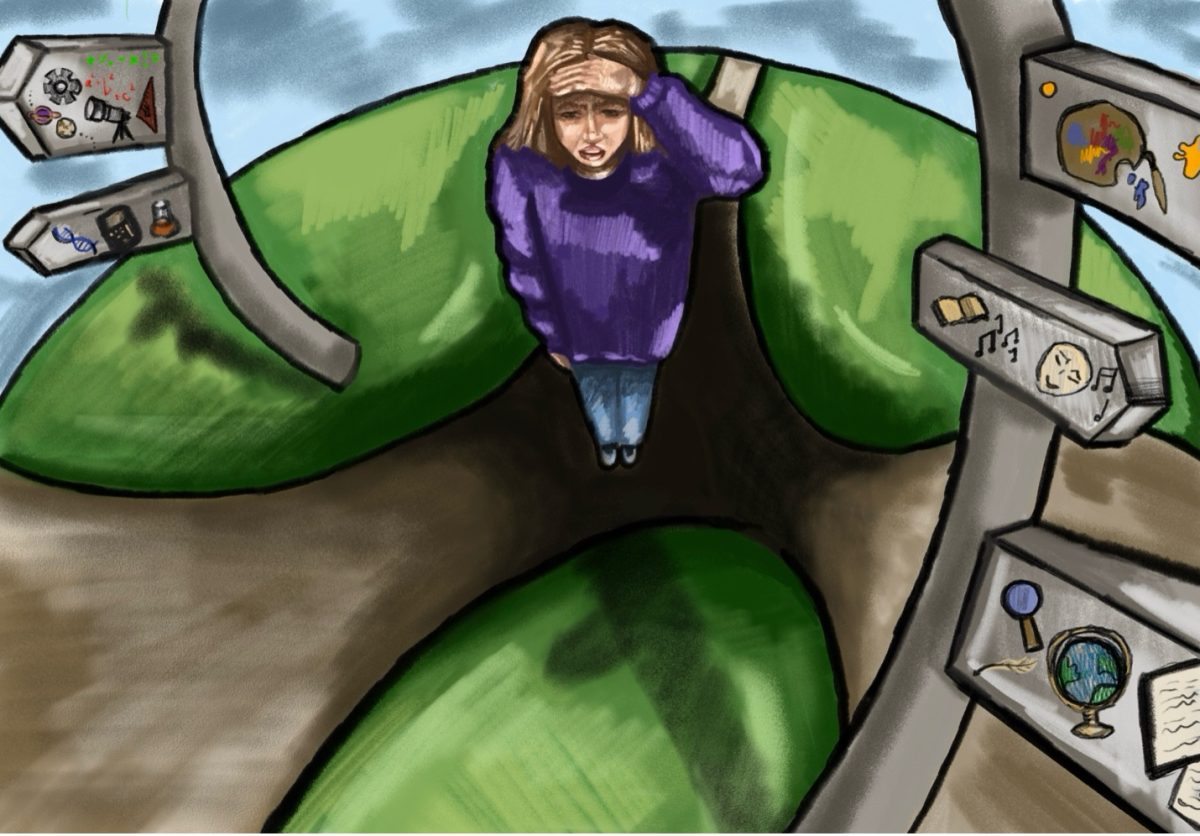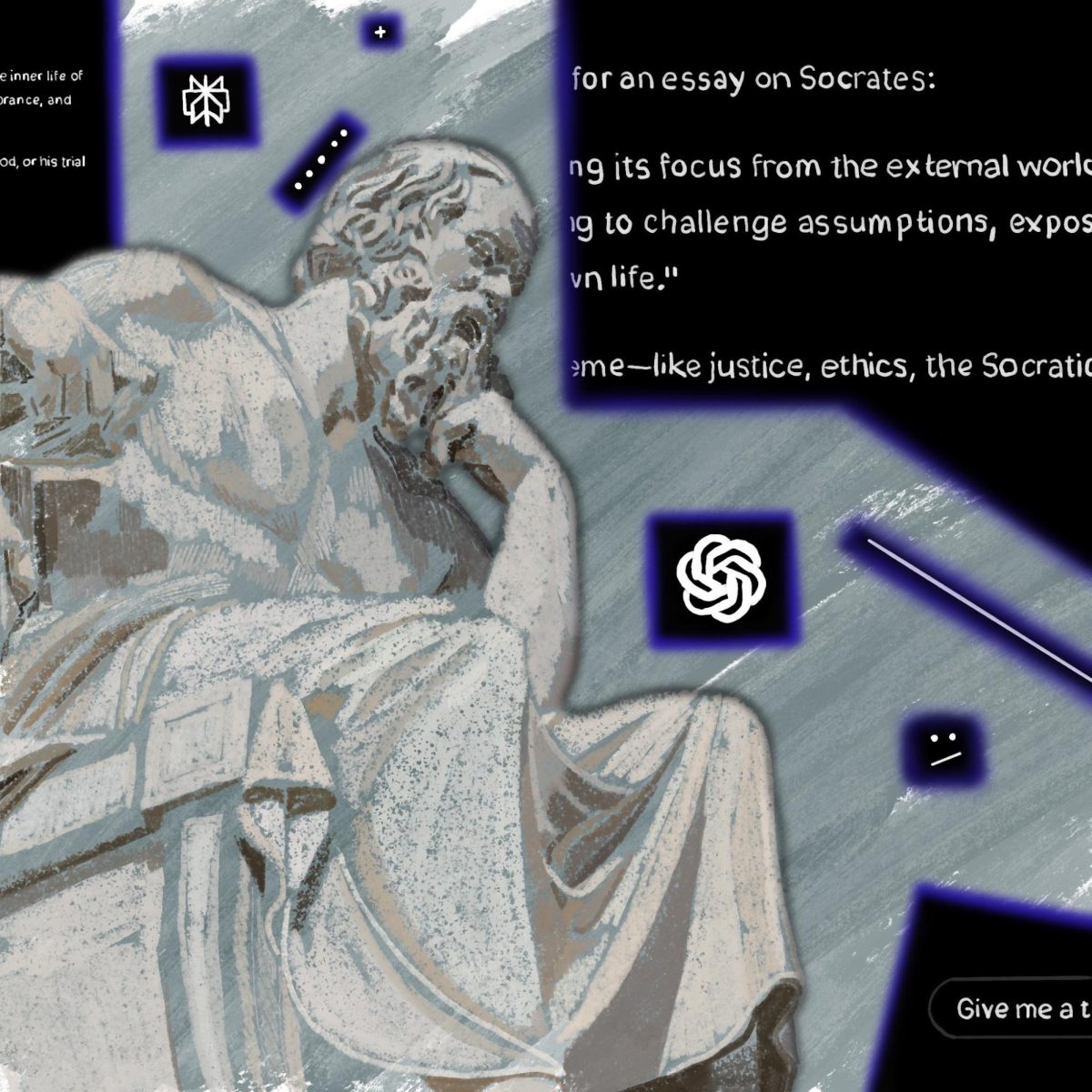This quarter, my physics class started using a Web site where students can post questions anonymously about course material or homework, after a TA suggested that students might feel intimidated asking questions during office hours or through e–mail. While I appreciate that the course instructor and TAs are putting effort into facilitating communication, the use of this new technology raises the question of why students would feel reluctant to ask for help in the first place. After all, the students in my Hum and Sosc classes have usually been keen on talking to professors and writing interns if they want a point clarified or to test out ideas. Why would attitudes toward requesting help be different in science classes?
My highly unscientific opinion is that the bigger problem is students’ fear of appearing unintelligent. Though this fear is hardly endemic to any major, it has often seemed to me that students who consider themselves “math and science people” are much more enthralled by the notion of “natural intelligence” than students from other disciplines are. My Sosc class has lately spent a lot of time earnestly discussing whether performance in math was the best indicator of intelligence. Not coincidentally, a lot of students in that class are majoring in math or something related. While it might seem convenient to define intelligence in terms of your own strengths, this practice actually proves to be a hindrance in the long run.
Suppose, for instance, that you do very well in high school chemistry and conclude that you must be quite clever. Then you get to college and have a rocky start in general chemistry. Now what? You might fall into the trap of thinking that if doing well means that you’re smart, doing poorly must mean you’re dumb. Thus, asking for help is conceding defeat, rather than a way of seeking self-improvement.
Consider the ways that our work is praised and critiqued in social science and humanities classes. We may be told that our arguments have insufficient evidence and use faulty logic, or that we offered surprising, insightful analysis. These comments are made with the assumption that we will learn from them and write better papers next time. The feedback you get in the future can help you assess whether you’ve succeeded.
On the other hand, we’re not given very much personalized feedback—verbal or otherwise—on our work in science classes. So, when we get back our exam scores, we seek ways to put them in context. The usual approach is to compare ourselves to other people. After all, many of these classes are graded on a curve. 70 percent may be fairly good if the average is 50 percent, but not so great if the average is 80 percent. However, focusing on z-scores may lead to a sense of either complacency or defeatism. When my professors are displeased with the class average, the class usually gets a stern lecture about how we have to work harder. The class gets a higher average on the next exam, but it’s hard to tell whether the class improved as a whole or whether the exam was simply easier. Even if our raw scores go up by a lot, our z-scores may not change much. It would then be tempting to conclude that working harder doesn’t accomplish much. So, the class average falls the next quarter, and we get yet another stern lecture about how we aren’t working hard enough.
Despite admonitions from professors about the necessity of working hard to do well in their courses, it is only in math and science classes that I’ve had classmates describe someone as “hardworking” in order to cast aspersions on his intelligence. People who perform well academically are pegged as either grinds or geniuses because apparently diligence and intelligence are mutually exclusive. However, I think the main difference between the people we perceive to be grinds and the people we perceive to be smart is simply that the former are more willing to admit how hard they work.
This belief is frequently misrepresented in straw man arguments as claiming that the only difference between a typical student and someone like Carl Friedrich Gauss is a little elbow grease and a host of environmental factors, rather than “innate intelligence.” But when we’re analyzing why some students succeed as other struggle in standard first- and second-year science courses that thousands of people have taken, discussing outliers like Gauss really isn’t relevant. It’s not as though the TAs grade us on some nebulous impression of how smart or dumb they think we are; we earn or lose points for specific skills and knowledge—drawing molecular orbital diagrams, solving Laplace’s equation, explaining the photoelectric effect, and so on. Nobody is born knowing these things.
We don’t have to sit around waiting for a genie to pop up and grant us 20 extra IQ points. What’s key is setting concrete goals about what we need to learn better rather than fretting about who’s smarter than whom. The next time you feel hesitant about asking for help, remember this: There’s nothing dumb about making sure you understand something properly. In fact, one may even say that’s a smart thing to do.
Jane Huang is a second-year in the College.







